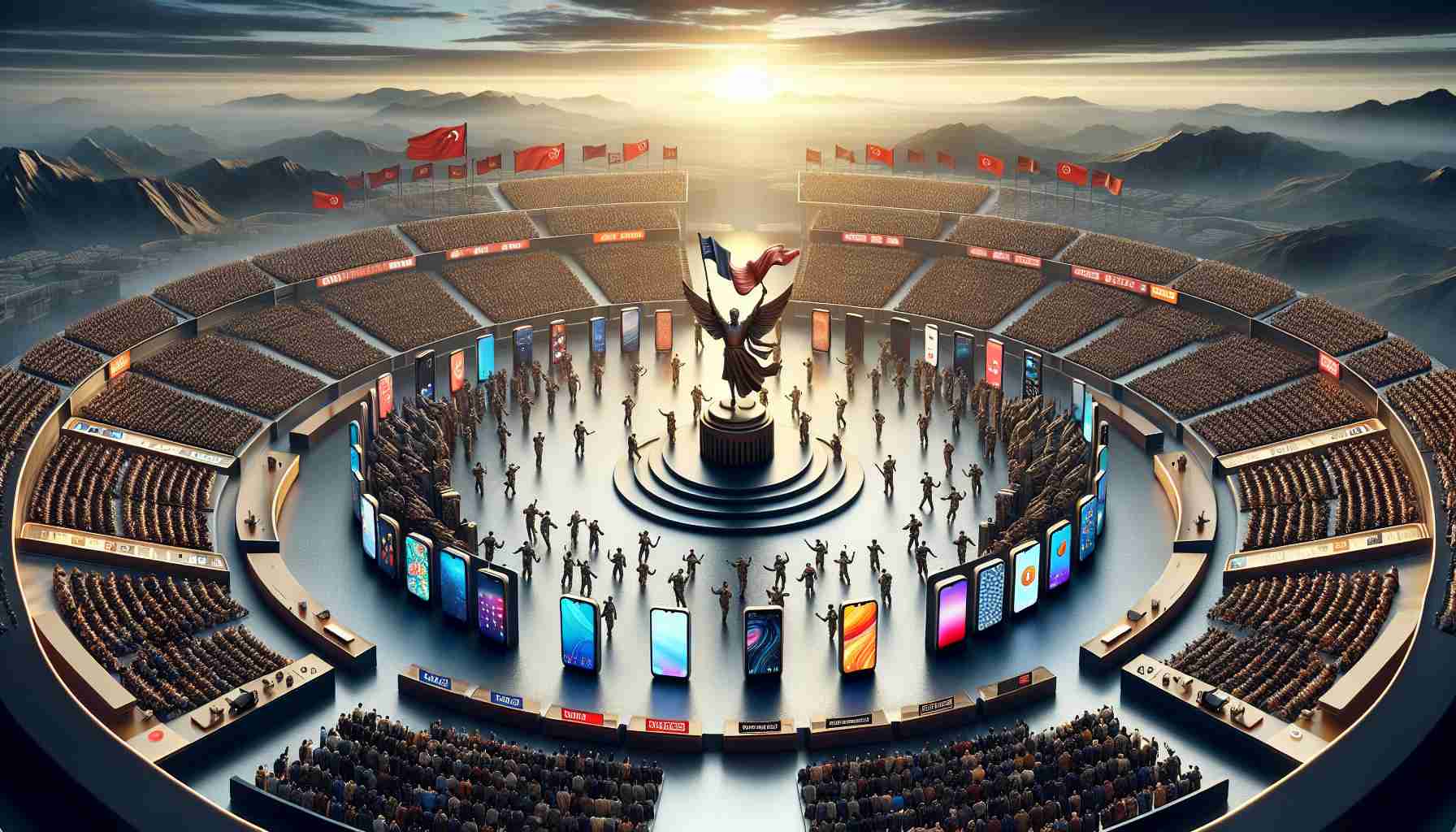Huawei has soared to the zenith of China’s smartphone industry, achieving a remarkable 70% increase in domestic smartphone shipments at the outset of 2024. This surge has catapulted the company past global competitors, including the renowned American tech giant Apple, which has seen a significant downturn in its Chinese market share.
Amidst a tough landscape, Huawei’s clever emphasis on innovation is bearing fruit. The brand’s commitment is exemplified by the Mate 60 Pro, a flagship 5G phone born from their own technological prowess, stunning both enthusiasts and skeptics alike. Furthermore, Huawei’s new Pura series, reenergizing its esteemed P series, underlines the company’s determination to keep pushing boundaries.
After the imposition of U.S. sanctions, Huawei turned its focus inwards, amplifying research and development efforts and striving toward technological self-reliance. The firm’s subsidiary, HiSilicon, has been instrumental in developing homegrown chipsets, while HarmonyOS, the company’s own operating system, now operates on a staggering 800 million devices worldwide. This development signals Huawei’s intention to position HarmonyOS as a genuine alternative to mainstream mobile operating systems.
Huawei’s strategy to ingrain itself into the fabric of the Chinese tech consumer market is proving successful. Its vision to conquer future tech horizons is apparent, and its market resurgence is likely to cast a ripple effect across the global tech ecosystem.
Setting aside the euphoria of its domestic dominance, Huawei is navigating a series of complex challenges, from circumventing the ramifications of international sanctions to constructing a robust ecosystem for HarmonyOS to foster a credible challenge to the technological duopoly of Android and iOS. The company’s ability to innovate in areas like 5G and artificial intelligence has played a pivotal role in its rebound, reflecting the resilience and dynamic approach to adversity that may well dictate Huawei’s fortunes in the global tech race.
Key Questions and Answers:
What led to Huawei’s rise in the Chinese smartphone market amidst US sanctions?
Huawei’s rise in the Chinese smartphone market, despite US sanctions, can be attributed to its substantial investment in R&D, which resulted in homegrown chipsets from its subsidiary HiSilicon and the development of its own operating system, HarmonyOS. By focusing on domestic needs and pushing the envelope with innovative products like the Mate 60 Pro and the new Pura series, Huawei appealed to national sentiment and technological patriotism, which resonated with Chinese consumers.
What are the major challenges Huawei faces?
The significant challenges Huawei faces include circumventing the impact of international sanctions, which affect its supply chain and global business operations, as well as establishing HarmonyOS as a credible competitor to Android and iOS. Huawei must also sustain its innovation in a highly competitive market while expanding its global footprint.
How does the success of HarmonyOS factor into Huawei’s strategy?
HarmonyOS is integral to Huawei’s strategy to create a self-sufficient ecosystem that reduces reliance on foreign technology. Its success is crucial for the company to offer a complete suite of products and services to its customers. By reaching 800 million devices worldwide, HarmonyOS is positioning itself as a viable alternative to the existing mobile OS duopoly, which ties into Huawei’s larger vision of becoming a global tech leader.
Controversies and Challenges:
Huawei’s success comes amid controversies such as allegations of cybersecurity risks, intellectual property theft, and close ties with the Chinese government, leading to distrust from international markets. The challenges include maintaining growth despite restricted access to certain technologies and markets due to US sanctions and convincing international consumers to adopt HarmonyOS.
Advantages and Disadvantages:
Advantages:
– Investment in R&D and innovation have led to advanced products like the Mate 60 Pro.
– Self-reliance with in-house chipsets and OS reduces dependency on external providers.
– Strong domestic support due to nationalistic preferences for homegrown brands.
Disadvantages:
– US sanctions have limited access to crucial technologies and software, impacting global sales.
– The global acceptance of HarmonyOS is uncertain, given the dominance of Android and iOS.
– International controversies and security concerns may affect brand perception and sales.
Suggested related links for further exploration include:
Official Huawei Website
